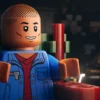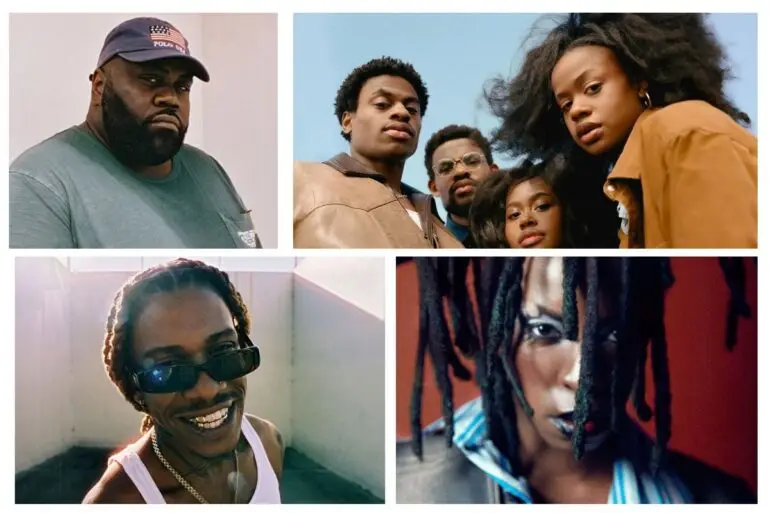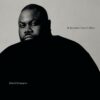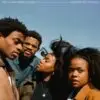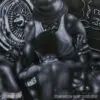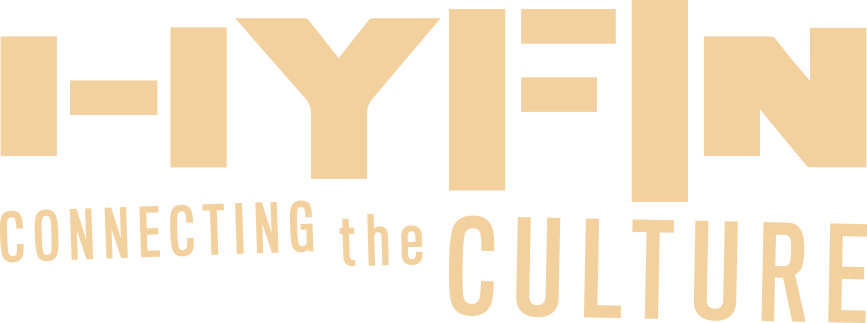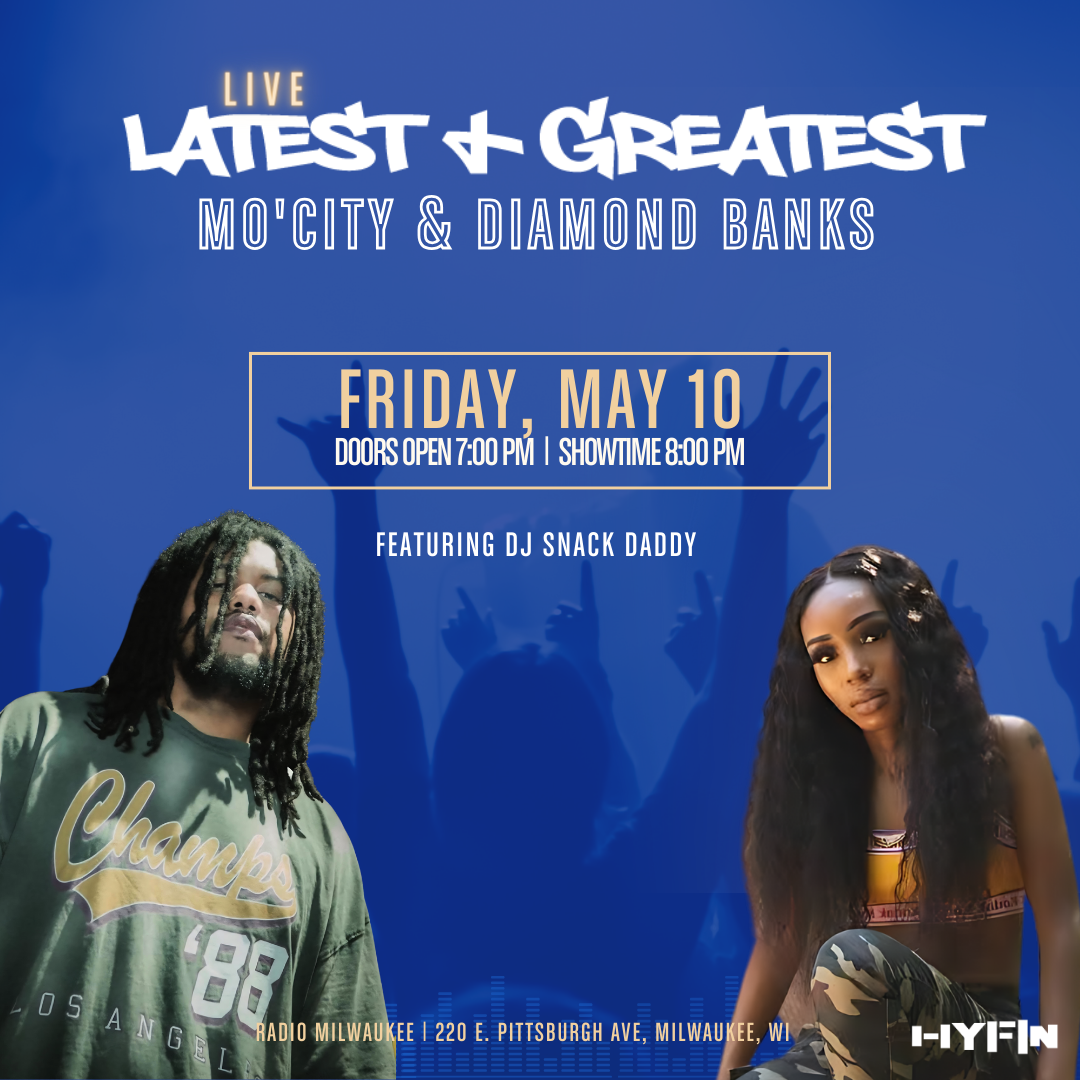Though it may seem like a strange choice on the surface, it felt natural for the musician Pharrell Williams to tell his life story through Legos. “My earliest memories were the Lego sets that my parents would get me when I was really, really, really young,” he says. “Whether you actually really build what the set is all about or you’re just putting pieces together … it’s just magical.”
As a kid, Pharrell lived in the Atlantis Apartments, a densely populated public housing complex in Virginia Beach, Va. Outsiders were afraid to go into his neighborhood, but for Pharrell, the place was special, teeming with talent and fun.
“There were a lot of athletes that were incredibly gifted, a lot of artists that were incredibly gifted,” he says. “You know, you talk about carbon? … That heat, that pressure, that time produced a lot of diamonds.”
If you take it back to when you were born, all of your nerve endings — sight, sound, smell, taste, feeling — they were all connected. And then when you turn 1, those nerve endings, they prune. And sometimes some of them stay connected. And the ones that stay connected give you synesthesia. And when they’re connected, they send ghost images and ghost information to the different parts of the brain. And so you end up “hearing” a color or “seeing” a sound.
The shapes [I see] are hard for me to explain, but it sort of zig zags. And those synth lines are yellow and brown for me. … And the yellow it goes from bright to mustard, marigold, and then there is just very stark brown. …
That song came from a trip that I went to in Brazil, and I just, like, lost my mind. I’d never seen so many beautiful women. They were just everywhere. And forgive the objectification, when I say that. But that was the impression that it made on my mind at that time, I don’t know, 20 years ago. … I’d never seen anything like that. Where am I? And if you could put that energy and feeling if that could be sort of transmuted [into a song]… that was the attempt.
He was different. He was one of those people that, like, he’s a musical savant. There’s not an instrument he couldn’t pick up and play. He’s a brilliant writer. Vocally, he’s incredible. He was an incredible performer and he wrote and produced for so many people. … [He was] like, “Do you own or your masters? If you don’t own your masters, we can’t work together.” … I never heard anyone say that before. Then his other thing was he wanted to sort of talk about religion. And I was like, interesting. And now I do own all of my master recordings. And I’d be happy to square off in a conversation about the business of religion versus the necessity of faith.
I had a problem with my voice for many, many, many years because I didn’t feel like I had found my voice. I always thought that my tone sounded like Mickey Mouse. The next time you listen to “Frontin’,” picture Mickey Mouse — you can’t unsee it.
The song is a sarcastic answer … for a rhetorical question: How do you make a song about someone so happy that nothing can bring them down? … When Despicable Me 2 came out [the studio] couldn’t get it to work [on the] radio because it was alien. It didn’t sound like anything else. … [Radio] didn’t play it until we did the video six months later, when the song was included on a DVD … and there was a budget to do a video for the song. Since we loved it as a companion piece to sell the DVD.
When you’re in the shower, you know, and the water’s just consistently running and it creates an effect of white noise. And that’s the reason why you can think clearly when you shower. … Ideas come. Or sometimes people sing in the shower – that’s the reason why they do it is because that consistent noise, that white noise is particularly freeing to the part of your mind that wants to just iterate and not be environmentally distracted. So running water, being near water, being in water, a bath, a pool, seeing the ocean, standing in the shower, washing my hands in the sink. It does it for me.
Transcript :
TONYA MOSLEY, HOST:
This is FRESH AIR. I’m Tonya Mosley.
(SOUNDBITE OF FILM, “PIECE BY PIECE”)
MORGAN NEVILLE: (As himself) Quiet on the set. Hey, Pharrell.
PHARRELL WILLIAMS: (As himself) Hey. How you doing, man? You know what’d be cool – is if we told my story with Lego pieces.
NEVILLE: (As himself, laughter) Seriously?
WILLIAMS: (As himself) Yes.
NEVILLE: (As himself) Lego.
WILLIAMS: (As himself) Just be open.
MOSLEY: Yes, Lego. That’s a scene from “Piece By Piece,” a new biopic about the life of music producer and multi-hyphenate artist Pharrell. But to call it a biopic almost feels too simple. Like so much of Pharrell’s music, the film is a mix of genres. It’s a musical, it’s a documentary, and it’s a Lego animation all in one. It pieces together Pharrell’s life growing up in Virginia Beach and the lows and highs of his ascension within the music and fashion industry. And did I mention the music? The film gives us a behind-the-scenes look at the making of some of Pharrell’s top hits that he’s produced both for himself and a long list of performers.
(SOUNDBITE OF SONG, “HAPPY”)
WILLIAMS: (Singing) It might seem crazy what I’m about to say. Sunshine – she’s here. You can take a break.
(SOUNDBITE OF SONG, “HOT IN HERRE”)
NELLY: (Singing) Hot in – so hot in here, so hot in – hot in…
(SOUNDBITE OF SONG, “RUMP SHAKER”)
WRECKX-N-EFFECT: (Rapping) All I want to do is zoom-a-zoom-zoom-zoom in a pum-pum. Just shake your rump. All I want to do is zoom-a-zoom-zoom-zoom in a pum-pum. Just shake your rump. Check, baby, check, baby, one, two, three, four. Check, baby, check, baby, one, two, three. Check, baby, check, baby, one, two. Check, baby, check, baby, one.
(SOUNDBITE OF SONG, “BEAUTIFUL”)
WILLIAMS: (Singing) Beautiful, I just want you to know you’re my favorite girl. Oh, yeah, there’s something about you.
(SOUNDBITE OF SONG, “I JUST WANNA LOVE U (GIVE IT 2 ME)”)
WILLIAMS: (Singing) I’m a hustler, baby.
JAY-Z: (Rapping) Hov, I’m a hustler.
WILLIAMS: (Singing) I just want you to know.
JAY-Z: (Rapping) Hov, I want to let you know.
WILLIAMS: (Singing) It ain’t where I been…
JAY-Z: (Rapping) It ain’t where I been, Hov.
WILLIAMS: (Singing) …But where I’m about to go.
JAY-Z: (Rapping) Top of the world. Young Hova, holla.
WILLIAMS: (Singing) Now, I just want to love you…
JAY-Z: (Rapping) Just want to love you, Hov.
WILLIAMS: (Singing) …But be who I am.
JAY-Z: (Rapping) You know you love me, Hov.
WILLIAMS: (Singing) And with all this cash…
JAY-Z: (Rapping) More money, more problems.
WILLIAMS: (Singing) …You’ll forget your man.
(SOUNDBITE OF SONG, “ROCK YOUR BODY”)
JUSTIN TIMBERLAKE: (Singing) Don’t be so quick to walk away. Dance with me. I want to rock your body. Please stay. Dance with me. You don’t have to admit you want to play. Dance with me. Just let me rock you till the break of day. Dance with me.
(SOUNDBITE OF SONG, “HOLLABACK GIRL”)
GWEN STEFANI: (Singing) Uh-huh. This my [expletive]. All the girls, stomp your feet like this. A few times I’ve been around that track so it’s not just going to happen like that ’cause I ain’t no hollaback (ph) girl. I ain’t no hollaback girl. A few times I’ve been around that track, so it’s not just going to happen like that ’cause I ain’t no hollaback girl. I ain’t no hollaback girl.
(SOUNDBITE OF SONG, “ALRIGHT”)
KENDRICK LAMAR: (Rapping) Alls my life, I has to fight, [expletive]. Alls my life, I – hard times like yah, bad trips like yah. Nazareth – I’m f***ed up. Homie, you f***ed up, but if God got us, then we gon’ (ph) be all right. N****, we gon’ be all right. N****, we gon’ be all right. We gon’ be all right. Do you hear me? Do you feel me? We gon’ be all right.
MOSLEY: Academy Award-winning filmmaker Morgan Neville directed “Piece By Piece” with interviews from music industry heavy-hitters like Snoop Dogg, Jay-Z, Gwen Stefani, Justin Timberlake, Kendrick Lamar and his partner from The Neptunes, Chad Hugo. There’s even a cameo of the late astronomer Carl Sagan, and everyone, of course, is a Lego.
Pharrell Williams, welcome to FRESH AIR.
WILLIAMS: Thank you. Your voice is amazing.
MOSLEY: The film is so cinematic, and I never thought I’d say that about a Lego film, but it is cinematic. Why Lego?
WILLIAMS: Oh, because when I was a child, you know, my fondest memories of, like, having toys and my earliest memories were the Lego sets that, like, my parents would get me when I was really, really, really young. The idea that you get to, like, escape when you don’t even know that you’re escaping because you’re just literally ideating and imagining in real time as you build with these pieces.
Whether you actually really build what the set is all about, or you’re just putting pieces together, like, what it does for the young mind and how it sets it free is just magical. And at the same time, I really also wanted, like, if I’m going to tell my story, which I was never really interested in doing, if I’m going to do it, I want to do it in a way that like my children, which were – we have our oldest, and then our triplets we had just been born.
MOSLEY: So four young kids. And, like, how old were they at the time of this idea? – ’cause this was five, six years ago, right?
WILLIAMS: Yeah. At that point, our oldest may have been 8 or 9. And then our babies had just been born. And so they’re now 7. And my whole thing was like, I didn’t know how long the animation process was going to take, but I definitely wanted them to understand the story as their dad would tell it.
MOSLEY: Yeah.
WILLIAMS: I wanted them to be able to get it. You know, if you tell it through the guise of Lego, it’s like, OK, they understand it’s like a world…
MOSLEY: Right.
WILLIAMS: …You know? It’s the only way it was going to happen if I was ever go to do it. I wasn’t interested in doing a…
MOSLEY: A biopic.
WILLIAMS: No way.
MOSLEY: Why?
WILLIAMS: Because – for two reasons. One, I have such a high standard of stories. And I didn’t really think my story would be interesting. Storytelling, to me, is an art form, and not everybody is good at it. And you need really interesting components to the story for it to be compelling. And then as a performer, like, I just, you know, say, who wants to see me? It’s a lot like – you’re probably used to your voice at this point.
MOSLEY: Yeah.
WILLIAMS: But even still, do you like hearing yourself on a voicemail?
MOSLEY: Hate it.
WILLIAMS: It’s the worst.
MOSLEY: I won’t even listen to this, Pharrell. Yeah.
WILLIAMS: Right? See? I don’t either.
MOSLEY: Right. Yeah.
WILLIAMS: I don’t look at my video. I don’t know, you know, read my interviews. I just don’t. It’s too much. My standards are too high. But I call it voicemail syndrome. So if you’re saying you don’t like it and you hate it, imagine an hour and change of it.
MOSLEY: I know.
WILLIAMS: So…
MOSLEY: The process, though – because like you said, it took five years because of the animation process to turn what was your life into a Lego movie. And one of the things that Neville did in this film was visualize your ability to hear colors and see sound.
WILLIAMS: Yeah.
MOSLEY: You talk about this often – synesthesia, which is a neurological mixing of senses. In the film, what’s so cool is that when you make music, the colors correspond with it, and then you give the piece of music as a musical note to the artist, and it’s beautiful color. You see seven colors – right? – that denote notes. Can you explain that to us?
WILLIAMS: If you take it back to when you were born, all of your nerve endings – sight, sound, smell, taste, feeling – they were all connected. And then when you turn one, those nerve endings, they prune. And sometimes some of them stay connected. And the ones that stay connected give you synesthesia, and when they’re connected, they send ghost images and ghost information to the different parts of the brain. And so you’ll end up hearing a color or seeing a sound.
MOSLEY: Yes.
WILLIAMS: Right? But there’s all kinds.
MOSLEY: Yeah.
WILLIAMS: And when you go and do the research, you realize a lot of, like, you know, there are graphemic synesthetes, too. And those are the people who, like, can recite, you know, 26-digit numbers because they see the two as slightly tilted, and they see the four as in burgundy, and they see – you know, and so it gives them this information. You know, it’s great for them.
MOSLEY: And what’s amazing is a lot of musicians do…
WILLIAMS: Tons of them.
MOSLEY: Have you worked with any of them? – because I was reading that Stevie Wonder might even have a form of synesthesia. And that makes sense because so much of his music, he is describing – he is describing color. There is just, like, a really beautiful sense of that within the music.
WILLIAMS: What I find fascinating is like, man, if he’s never seen red before…
MOSLEY: Yeah.
WILLIAMS: …Then how does he know what red is?
MOSLEY: Right.
WILLIAMS: How do we know that he’s not seeing orange?
MOSLEY: Yep.
WILLIAMS: But he thinks it’s red, and there’s no way to really verify that. Like, but he is seeing red. I mean, he’s a genius, man. I don’t know. I was just saying is – you can go down a rabbit hole with synesthesia. But…
MOSLEY: Yeah. Have you and an artist ever vibed over that?
WILLIAMS: Yeah, ’cause we all see different things. It utilizes the Roy G. Biv, but it’s not based on the Roy G. Biv’s arrangement.
MOSLEY: What do you mean?
WILLIAMS: Meaning, you know, certain people hear chords, and they don’t necessarily picture the same colors. Everybody – it’s very unique…
MOSLEY: I want to play…
WILLIAMS: …The experience.
MOSLEY: …A song just to give us, like, a better understanding of how your process works. So I chose “Milkshake,” which I heard in a commercial recently. I mean, we’re here. Time has really gone by – right? – that “Milkshake” is a commercial. But “Milkshake” was a 2003 song performed by Kelis and written and produced by you and Chad Hugo as The Neptunes. Let’s listen to a little.
(SOUNDBITE OF SONG, “MILKSHAKE”)
KELIS: My milkshake brings all the boys to the yard, and they’re like, it’s better than yours. Damn right it’s better than yours. I can teach you, but I have to charge. I know you want it – the thing that makes me, what the guys go crazy for. They lose their minds the way I wind. I think it’s time. (Vocalizing) Warm it up. (Vocalizing) The boys are waiting.
MOSLEY: That was Kelis performing “Milkshake,” written and produced by my guest today, Pharrell. OK, what does “Milkshake” look like to you, Pharrell?
WILLIAMS: It is, like, the shapes are hard for me to explain, but it sort of zigzags. And those synth lines are yellow and brown for me. And the yellow goes from bright to mustard, marigold. And then there’s, like, just, like, very stark brown.
MOSLEY: What I’ve always found really interesting about your music, it feels like environmental. Like, I’m hearing, like, just sounds that I hear in my everyday life. And that one, in particular, like, there are the bells and, like, buzzing sounds and things like that. Yeah.
WILLIAMS: That song came from a trip that I went to in Brazil, and I just like lost my mind. I’d never seen so many beautiful women, all and – they were just everywhere. And forgive the objectification when I say that.
MOSLEY: Yeah.
WILLIAMS: But that was the impression that it made on my mind at that time – I don’t know – 20 years ago. I don’t know.
MOSLEY: Right, right.
WILLIAMS: I was – you know, I was a kid.
MOSLEY: Yeah.
WILLIAMS: Really, you’re just like, whoa. I’d never seen anything like that. Where am I? And if you could put that energy and feeling, if that could be sort of transmutated (ph), if you will.
MOSLEY: Into a song.
WILLIAMS: Yeah. That was the attempt.
MOSLEY: One of the things that the film does is give us a grounding of you as a young person coming into yourself. And synesthesia is a condition that you don’t know any other way because that’s how you’ve always been. But when did you realize that others may not see the world the way that you do?
WILLIAMS: Oh, when you talk about it in a conversation, and they kind of be like, what? What did you say? What colors (laughter)?
MOSLEY: Let’s take a short break. If you’re just joining us, my guest today is Pharrell. We’re talking about his new animated biopic, “Piece By Piece.” We’ll continue our conversation after a short break. This is FRESH AIR.
(SOUNDBITE OF WOOKIE’S “SCRAPPY”)
MOSLEY: This is FRESH AIR. And today I’m talking with multhyphenate artist and music producer Pharrell about his new animated biopic, “Piece By Piece,” which is about his life growing up in Virginia Beach, Va., and career in the music industry, creating hits like “Drop It Like It’s Hot,” “Get Lucky,” and the phenomenon that was “Happy.” The film is done entirely using Lego animation.
You mentioned how when one of your senses is being blocked – basically, sensory deprivation – it allows your mind to wander and be imaginative. I was really interested in this because I’ve done, like, the sensory deprivation tanks, and I thought it was so interesting, like, to hear my heart beat in my ears. I was wondering, as part of your process, do you create for yourself sensory deprivation at times so that you could actually hear your creativity or imagination?
WILLIAMS: Well, that is, like, a controlled environment where you have the ultimate sensory deprivation, what you’re talking about…
MOSLEY: Yup.
WILLIAMS: …Those chambers. But a simpler version of it is just like when you’re in a shower, you know, and the water is just consistently running and it creates an effect of white noise. And that’s the reason why you can think clearly when you shower or…
MOSLEY: Ideas come to you. Do ideas come to you?
WILLIAMS: Of course. Ideas come or sometimes people sing in the shower. That’s the reason why they do it is because that consistent noise, that white noise, is particularly freeing to the part of your mind that wants to just iterate and not be distracted by – environmentally distracted. So running water, being near water, being in water, a bath, a pool, seeing the ocean, standing in the shower, washing my hands in the sink – it does it for me.
MOSLEY: I think we learn in the movie that “Happy” came from running water for you.
WILLIAMS: That was a cinematic liberty.
MOSLEY: OK, OK (laughter).
WILLIAMS: It was a way of just, like, sort of simplifying how the process came about. I was in a studio racking my brain for that song. And after nine different songs being and versions of something fill in the blank for that movie – the song is a sarcastic answer of frustration for a rhetorical question. How do you make a song about someone so happy that nothing can bring them down? I mean, like, get out of here.
MOSLEY: OK, so it’s 2013. You’re tasked with writing music for “Despicable Me 2.” As you said, you’re racking your brain, and, like, nothing’s coming up that, like, they love, the executives love. And then this “Happy” song comes up. Was it a hit immediately, or did you have to sell it as well?
WILLIAMS: They got it. But then all of a sudden, when the movie came out, they went to go try to work it at radio. And they couldn’t get it to work at radio ’cause it just didn’t – it was alien. It didn’t sound like anything else.
MOSLEY: So radio stations wouldn’t play it.
WILLIAMS: No. No. They didn’t play it until we did the video six months later, when the song was included on the DVD. There were DVDs at that time. And there was a budget to do a video for the song, since we loved it, as a companion piece to sell the DVD.
MOSLEY: One of the things you discovered that you talked about a lot but is so powerful to me because it articulated a feeling that I felt is, like, so many people told you what that song meant for them. But what that revealed to you was the pain that many people are in…
WILLIAMS: Oh.
MOSLEY: …Almost the opposite of happiness.
WILLIAMS: Oh. I’m very empathetic. So as they’re telling you what they went through, it’s heavy. You know, and I absorbed it in a way that, like – it was just a lot for me.
MOSLEY: I want to talk with you a little bit about working with artists ’cause there’s this story of you and Snoop Dogg working together that’s told in the film, and you all collaborated on the 2004 hit “Drop It Like It’s Hot.” Let’s listen.
(SOUNDBITE OF SONG, “DROP IT LIKE IT’S HOT”)
SNOOP DOGG: (Rapping) Snoop. Snoop. When the pimp’s in the crib, ma, drop it like it’s hot. Drop it like it’s hot. Drop it like it’s hot. When the pigs try to get at you, park it like it’s hot. Park it like it’s hot. Park it like it’s hot. If a [expletive] get a attitude, pop it like it’s hot. Pop it like it’s hot. Pop it like it’s hot. I got the Rollie on my arm, and I’m pouring Chandon, and I roll the best [expletive] ’cause I got it going on.
WILLIAMS: (Rapping) I’m a nice dude with some nice dreams. See these ice cubes? See these Ice Creams? Eligible bachelor, million-dollar boat that’s whiter than what’s spilling down your throat – the Phantom exterior like fish eggs. The interior like suicide wrist red. I can exercise you. This could be your phys ed. Cheat on your man, ma. That’s how you get ahizzead (ph). Killer with the beat…
MOSLEY: That’s Snoop Dogg’s “Drop It Like It’s Hot,” which was produced by my guest today, Pharrell. And, Pharrell, Snoop Dogg said in the movie that – I want to get this right – that you were the first to allow us, the public, to see the smile in him. And I thought that was so tender. And it made me think, are you really responsible for Snoop Dogg becoming America’s uncle? – ’cause, you know, after that song, he did become this force that – you know, we now see him beyond, like, that persona as the hard West Coast rapper. Do you understand what he meant when he says that, like, you allowed us to see the smile in him through that song?
WILLIAMS: You know, when he says all those really nice things, I’m always just always taken aback by it. And I don’t know if I really get what he implies. But I’m honored that he associates me with those types of reflections.
MOSLEY: Well, what did you see in him for that song? – ’cause that song is light. It does provide, like – you know, it’s got the groove, but it also has, like, a lightness to it.
WILLIAMS: Well, it’s interesting that you see “Drop It Like It’s Hot” as, like, a lightness, and I guess I never really looked at it that way. I mean, at the time, I just knew that the traumas was hitting hard, and it felt good. I don’t know if I had ever really given it any kind of emotive analysis of it. But I guess you’re right. It’s not dark. Like, you’re right. That’s true. I never saw it that way until you said it.
MOSLEY: I mean, well, you said that you often try to reverse engineer the feeling that you feel about an artist when you all are first working together so that you can come up with that sound. Can you say more about that?
WILLIAMS: Well, it’s the energy that people have when they walk in. It’s what they say that they’re looking for. And then it’s what their voice and energy tells you that it needs. It’s sort of a combination of all three. Every once in a while, someone walks in saying they want one thing, and I’m like, no, you don’t, or, I disagree, or, I just don’t see that in you. And I’m not always right. Sometimes they go out and go do it somewhere else, and it’s like, damn, you know what? I didn’t see that. But that’s me, though. I’ll tell you in a heartbeat, man, I just didn’t see it.
MOSLEY: Our guest today is Pharrell Williams. We’ll be right back after a short break. I’m Tonya Mosley, and this is FRESH AIR.
(SOUNDBITE OF SONG, “PIECE BY PIECE”)
WILLIAMS: (Singing) I decided a long time ago I would write my own chronicle. Turn around – that ain’t me. No one’s following a lead. Let me build what I see. You know it starts with a piece. Give it time. Let it be instead of suffocating crazy dreams – hey – till it starts paying off – hey – till it starts paying off – hey – till it starts paying off – hey – till it starts paying off. Oh, and when it pays off, pays off, oh, it feels so good inside. Oh. And when I told you, I told you, and the only way it happened was mine. When it was time, I got butterflies.
MOSLEY: This is FRESH AIR. I’m Tonya Mosley, and today my guest is multihyphenate artist and music producer Pharrell. We’re talking about his new animated biopic, “Piece By Piece,” which is about his life growing up in Virginia Beach, Va., and his career in the music industry creating hits like “Drop It Like It’s Hot,” “Get Lucky” and the phenomenon that was “Happy.” The film is done entirely using Lego animation.
You have this ability to capture the essence of an artist. There’s times, though, when artists don’t want what you’re giving. You said so nicely in the film, I wrote this song for Prince, and he didn’t want it. It ended up being a hit for you. But what’s the story behind that of you writing a song for Prince and he not accepting it?
WILLIAMS: Well, he was different. You know, he was one of those people that, like – he’s a musical savant. There’s not an instrument he couldn’t pick up and play. He’s a brilliant writer. Vocally, he’s incredible. He was an incredible performer, and he wrote and produced for so many people. So in his mind is, like – you know, there’s caveats, buddy…
MOSLEY: I know. I know.
WILLIAMS: …And one of which was like, do you own all your masters? If you don’t own your masters, we can’t work together. I was like, whoa.
MOSLEY: Was he one of the first to say that to you? Had you heard that before?
WILLIAMS: No, I never heard anyone say that before. Then his other thing was he wanted to, like, sort of talk about religion. And I was like, interesting. And, you know, now I do own all of my master recordings. And I’d be happy to square off in a conversation about the business of religion versus the necessity of faith.
MOSLEY: At that time, it felt – was it over your head?
WILLIAMS: No. I just was young and was like, for real, oh, OK? Whatever.
MOSLEY: Yeah.
WILLIAMS: You know?
MOSLEY: Yeah.
WILLIAMS: Not knowing that he wasn’t going to be here that long, you know?
MOSLEY: What year was this?
WILLIAMS: I was incredibly respectful. I mean, like, he was the goat then. He still is. You know what I’m saying? I don’t know. This might’ve been, like, the early 2000s.
MOSLEY: The song was “Frontin’,” right?
WILLIAMS: Yeah. But that was just the music for it…
MOSLEY: OK.
WILLIAMS: …At the time. Yeah.
MOSLEY: I was wondering a little bit – I wanted to talk to you for a minute about your singing voice. Like, how did you find your singing voice? – because up until the moment when you decided to become, like, this solo artist with your own music, you were making beats for other people. And did you always know that you were a falsetto? Like, how did you find that voice?
WILLIAMS: I had a problem with my voice for many, many, many years because – that was just it – I didn’t feel like I had found my voice. I always thought, like, my tone sounded like Mickey Mouse. The next time you listen to “Frontin’,” picture Mickey Mouse. You can’t unsee it.
MOSLEY: Stop.
WILLIAMS: I swear. That’s one. Now, that’s just my tone, then there is skill set…
MOSLEY: Yeah.
WILLIAMS: …Not being flat. I definitely didn’t use any kind of tuning back then, so I was flat all over the place, sounding like a hot vermin, just sounding crazy. And my standard is super high.
MOSLEY: Yeah.
WILLIAMS: Remember; I told you that’s the reason why I didn’t want to do a documentary. My standard is high. I work with great singers. I worked with Beyonce before. I worked with Rihanna. I worked with, like, people who really can sing. I worked with Shakira. I worked with Kim Burrell.
MOSLEY: Yeah.
WILLIAMS: I work with singers. I worked with The Clark Sisters. I know what, like, singing really, really, really is. The craft of singing is a real thing.
MOSLEY: How did you get over it then if you felt like you sounded like Mickey Mouse? – because there was a part of you that wanted it. Like, you wanted to be a solo artist. You wanted to be a star. You wanted to be successful.
WILLIAMS: That was ego when I did “Frontin’.” I wanted to show that, like – I was known for, like, rapping and making beats at the time. And I was like, yo, I’m going to go do this thing, too. It was more of a flex. And then I looked up and was like, oh, but then you got to go out there and go tour it. And I hated touring.
MOSLEY: What don’t you like about it?
WILLIAMS: I love being all over the world. I hated staying in different hotels and not really having, like, the right options that I felt like I wanted to. I was always that way. I was a very particular child. You know, I like what I like. And when I can’t have what it is that I like – I’m very routine, and I ain’t realize that. I didn’t realize a lot of things until later in life. But my issues were, like, that I was very hardwired for regiment and consistency, and I don’t like new environments.
MOSLEY: Yeah.
WILLIAMS: But I loved, man, touring with N.E.R.D. and going to, like, Sydney, you know, or Amsterdam or, like, London, Brixton shows. But I hated – I didn’t really enjoy, like, the hotel accommodations. And I didn’t really like being on the bus all the time.
MOSLEY: Yeah.
WILLIAMS: I was, like, not into that at all.
MOSLEY: Right.
WILLIAMS: So, you know, I was just very particular as a kid. And I just didn’t understand what I didn’t understand, and I didn’t have anyone to explain it to me because I came from Virginia, you know? There wasn’t, like, a blossoming music industry there. It wasn’t known for that. It was only that when Teddy moved there and brought his studio and, like, his whole entire business outfit there. That’s how we got into the music industry. But other than that, it would’ve never happened. So there was no one to really show us the ropes. It’s not like being here in LA.
MOSLEY: Our guest today is Pharrell Williams. Here’s his song “Frontin'” from 2003.
(SOUNDBITE OF SONG, “FRONTIN'”)
WILLIAMS: Sexy thing. Girl, your a** is so fat – been waiting to get with you. (Singing) Hey, yeah. Don’t want to sound full of myself or rude, but you ain’t looking at no other dudes ’cause you love me. I’m sorry, baby – so sexy. So you think about a chance. You find yourself trying to do my dance, maybe ’cause you love me. You do it well. So then we tried – I’m thinking to slow down because you weren’t used to how fast we touched, fast we touched. Then we locked eyes, and I knew I was in there and I was going to tear your a** up, tear your a** up. I know that I’m carrying on. Never mind if I’m showing off. I was just fronting. You know I want you, babe. I’m ready to bet it all unless you don’t care at all, but you know I want you. You should stop fronting, babe. Trying to be the best girlfriend you could be, but still, you sneak and look at me.
MOSLEY: We’ll be right back after a short break. I’m Tonya Mosley, and this is FRESH AIR.
(SOUNDBITE OF PRINCE SONG, “THE BALLAD OF DOROTHY PARKER (2020 REMASTER)”)
MOSLEY: This is FRESH AIR, and today we’re talking to multihyphenate artist and music producer Pharrell about his new animated biopic “Piece By Piece,” which is about his life growing up in Virginia Beach, Va., and his career in the music industry, creating hits like “Drop It Like It’s Hot,” “Get Lucky” and the phenomenon that was “Happy.” The film is done entirely using Lego animation.
You grew up in Virginia Beach. Can you describe where you grew up, Atlanta’s housing projects?
WILLIAMS: It was public housing. We lived on a federal subsidy – so, you know, government cheese and, you know, all those essentials. Government edition – like, you know, that was the vibe.
MOSLEY: Right. Yeah.
WILLIAMS: When you live in those neighborhoods, you’re really living next door and right on top of each other. The units are not that big. So a lot of the people – the tenants spend a lot of their time outside. And so you’re in a community that is closely packed. The units are facing each other. So almost all the structures of the neighborhood are forming courts, courtyards. You are facing each other, oftentimes maybe even pitted against each other. And usually, if you’re lucky, there’s two ways in and out of the neighborhood, but most of the time there’s only one way in and one way out. And it produces this type of person.
Outside looking in, people were afraid to go in there. Inside looking out, it was very magical because everybody was so close in proximity. It produced – you know, you talk about, like, carbon – right? – black. You know, that heat, that pressure, that time produced a lot of diamonds. There were a lot of athletes that were incredibly gifted, a lot of artists that were incredibly gifted.
Now, the odds are pretty much stacked against you because your teachers need to see what you have in you in terms of your propensity. And not all of the – education didn’t always meet us in the intersection or where we were, how we process information to, like, thinking about what we were going to do in our five- and 10-year and 15-year trajectory. We weren’t having those kinds of conversations. So, yeah, that was what it was like to be on a federal subsidy. It’s like you’re an outcast before you even step foot outside the neighborhood. You don’t even know.
MOSLEY: It was so vibrant the way it was shown in the movie at the same time, though, which…
WILLIAMS: ‘Cause we didn’t want to make poverty porn. That’s the thing. It’s like I said. Outside looking in, you’d think, oh, woe is me. I’m so poor. Man, we were having so much fun. You’d go in that neighborhood. You’d see 20 kids doing wheelies on their bicycles from light pole to light pole.
MOSLEY: And you felt like – and I understand this feeling – that there’s so many – like, there’s so many talented people. You ask yourself, why you?
WILLIAMS: That was it. Why me? – ’cause I knew I was the least talented person in my neighborhood. Atlantis was and is teeming with really talented people – all the housing projects. They ran…
MOSLEY: Do you ever feel survivor’s guilt?
WILLIAMS: No, never survivor’s guilt – just more just, like, just questioning, just trying to understand it ’cause if I don’t know why, then I’m like, well, how long is it going to last then? If I don’t know why, then I don’t know the when. If I don’t know when, then I don’t – you know, do I really understand the what?
MOSLEY: Do you feel like you know now?
WILLIAMS: Oh, yeah. My job is to hold the door open. Yeah, for sure.
MOSLEY: I love how you described it many years ago. You said that, in many ways, it feels parallel in your mind conceptually to America itself because it’s progression that you’re in love with, but it’s also, like, untapped potential. It’s a place with so much untapped potential.
WILLIAMS: Yeah.
MOSLEY: Can you say more about that?
WILLIAMS: Oh, it’s a beautiful place. It’s a second-tier market. And it is still teeming with low-hanging fruit. And if you’re willing to take the time out to fly there and go shake the tree yourself, you actually get some of the sweeter fruit to fall. It’s there.
MOSLEY: That’s so interesting because, like, as we will see in the film, as you mentioned, record producer Teddy Riley discovered you and The Neptunes at a talent show. And just to give people a little bit of the backstory, he set up his studio in Virginia Beach, Future Recording Studios, right across the street from your high school. How did you and Chad prepare for this talent show?
WILLIAMS: We just had Chad’s keyboard, you know, the stuff that we had programmed in there. And we just went out there and did what we could.
MOSLEY: What’s so cool about Teddy Riley coming to Virginia Beach – it’s like, he didn’t really even have that much of a connection to Virginia Beach. Like, it seems so serendipitous that he would say, of all the places, I’m going to put a studio in Virginia Beach. And he talks about why he ended up doing that – to get away from, like, a lot of things.
WILLIAMS: I still don’t know why. He’s told it a million times, and I swear to you I cannot walk away with a deduced, clear idea of why he chose Virginia Beach, Va., and chose right there on Virginia Beach Boulevard, literally right next to my school, a five-minute walk. And not five years before we were there or five years after – like, literally…
MOSLEY: He was there.
WILLIAMS: …While we were there.
MOSLEY: Yeah.
WILLIAMS: I mean, he had, like, Bobby Brown pulling up to the studio, you know, getting out of, like, expensive, foreign cars with furs on. I had never seen a fur jacket – a short fur jacket or let alone dudes wearing furs. Like, I didn’t – that’s, like, a New York thing or, like, something you would see, like, mobsters with. But, like, we didn’t see that. And he was making amazing guy music and making amazing -t his is before Blackstreet – amazing guy music. He was making Bobby Brown music. You know, he had just done “Dangerous” for Michael Jackson. We were like, who is this guy that – like, Teddy Riley, like, is one of the greatest producers ever, and he moved where?
MOSLEY: And so after he saw you guys in that talent show, you worked in his studio for a little bit. What did you learn from working in his studio?
WILLIAMS: Well, I learned studio etiquette. Be quiet when, like, masters are at work. And I learned very hard lessons about that because I would like, man, why don’t you change that chord? Or, you know, you should use a different snare. And you’re like, what?
MOSLEY: I never thought I’d see it, but we got to see “Rump Shaker” in Lego form in this movie, the actual video.
(LAUGHTER)
WILLIAMS: Which is crazy.
MOSLEY: It is crazy. The video – you know, the legendary iconic scene from the video is the woman with the saxophone. And you guys actually have her in Lego form and sax.
WILLIAMS: Yeah.
MOSLEY: But people will learn the story in the film. But what verse did you write for Teddy’s “Rump Shaker”?
WILLIAMS: The verse that he says, the one where it’s Teddy. Ready with the – Teddy, ready with the one-two checker – that part.
MOSLEY: You call yourself during those early years – you said it a few times during our conversation – like, arrogance, hubris. And…
WILLIAMS: Yeah.
MOSLEY: Can you say more of what you meant by that? Like, what did that look like, a young Pharrell?
WILLIAMS: I just didn’t know no better. I just thought, oh, like – because I came from an era of, like, people bragging, you know? You would beat your chest. You would pat your back. You know, I’m the best, I’m this, I’m that, you know? You know, you saw a lot of, like, really greatest of all time people, Ali, you know, Michael Jordan, you know, Michael Jackson, Prince. You know, Michael had humble energy, but he’ll tell you he was the greatest.
MOSLEY: Right, right.
WILLIAMS: And that was his goal, so you’re dealing with that. Then you’re dealing with every rapper saying they’re the best, the baddest. They’re the this, they’re the that. It was just everywhere. The athletes, the artists, you know, any and everybody of note…
MOSLEY: Right.
WILLIAMS: …Would champion their brand with borderline hubris or full-blown, like, arrogance. And you would have to be good enough to back these things up.
MOSLEY: I feel like you couldn’t be any other way, though. I mean, if you’re coming from nowhere, essentially, you are the hype man.
WILLIAMS: Right.
MOSLEY: You’re the one that’s got to tell people, I’m good.
WILLIAMS: Yeah. But then, like, at a certain point, I met Nigo-san out in Japan. And this guy…
MOSLEY: And who is that, just to let people know who don’t know?
WILLIAMS: Nigo is my partner in Human Made. He’s a Japanese founder, you know, apparel and footwear designer. When I met him in Tokyo, you know, he had more Rolls-Royces than me, and he did not brag. And he didn’t say anything at all, really. He just would, like, pull up. And you’d just be like, wow. The power of the silence – that changed me. I was like, man, I don’t need to brag. And then, like, you know – and that started the process. That was, like, 20-something years ago, and I still kind of bragged. But I took note that, like, he had way more impact, and he didn’t say anything. He’d just pull up, or he’d just put that on.
MOSLEY: Yeah.
WILLIAMS: Or, you know, he’d just be doing the most but not saying anything.
MOSLEY: Right.
WILLIAMS: You know, doing the most but saying the least. And then, like, when I turned 40, then, like, you know, I had, like, a series of songs go No. 1 that were commissioned for people. They were looking for specific things. It wasn’t just me waking up going, I’m going to do this for you, and this is what you need. It was more like the universe came to me with three different things that I needed to do. And when I did them, they became bigger records than anything I had ever done before.
So that, like – it humbled me and made me cry. It was like, whoa, OK, all this time I thought it was all about me. And, you know, I’m the genesis of what I’m doing. And, you know, I come up with the impetus. And the universe was like, no, you know? You had to be frustrated. You tried it nine times and it didn’t work, did it? And then I decided that you would have some success, the universe says to me, you know? And it was three times that year. I had three No. 1s and was like, OK.
MOSLEY: What were the No. 1s? Do you remember?
WILLIAMS: “Blurred Lines,” “Get Lucky” and “Happy.”
MOSLEY: What a year. My gosh.
WILLIAMS: Yeah. That was a summer, yeah. It was crazy.
MOSLEY: That was a summer?
WILLIAMS: Yeah.
MOSLEY: “Blurred Lines” is an interesting one because you learned other lessons from that. I mean, a lawsuit came out of that. Marvin Gaye’s family said that it was very similar to a record of his.
WILLIAMS: Yep.
MOSLEY: Did this change the way you approach music, approach when you’re wanting to have a similar sound to something else to call back to our memory? It’s confusing to me, honestly, Pharrell, because so much music calls back. You know what I mean?
WILLIAMS: Well, that’s the thing. But is it calling back because it is a familiar feeling, or is it calling back because it’s actually using the same elemental building blocks of the music? And is it protectable, right?
MOSLEY: Those were the questions that were up, right.
WILLIAMS: Right, right. And the universe did something because I had – up until that point, I had only graduated high school. But I went back to school and got my master’s in music theory because I wanted to understand why we lost that case when I knew fundamentally what the differences were. And, yeah, so I got my master’s and working on my doctorate.
MOSLEY: You’re working on your doctorate.
WILLIAMS: Yeah.
MOSLEY: Is it in music?
WILLIAMS: Because I have three honorary doctorates right now. And I felt like the universe was telling me, like, listen.
MOSLEY: Yeah.
WILLIAMS: You need to, like, go back to school.
MOSLEY: Is it in music theory?
WILLIAMS: Yeah, in music theory.
MOSLEY: How did that change your approach, though, to producing music?
WILLIAMS: Oh, I mean, I just – I have always known music. I was classically trained as a percussionist. But when it came to, like, the harmonics, it was always by ear. So I was instinctively learned, but now I have an academic understanding for what it is that I’m actually playing when I’m playing things with harmony.
MOSLEY: Let’s take a short break. If you’re just joining us, my guest today is Pharrell. We’re talking about his new animated biopic “Piece By Piece.” We’ll continue our conversation after a short break. This is FRESH AIR.
(SOUNDBITE OF BEASTIE BOYS SONG, “NAMASTE (REMASTERED 2009)”)
MOSLEY: This is FRESH AIR. And today I’m talking with multihyphenate artist and music producer Pharrell about his new animated biopic “Piece By Piece,” which is about his life growing up in Virginia Beach, Va., and career in the music industry, creating hits like “Drop It Like It’s Hot,” “Get Lucky” and the phenomenon that was “Happy.” The film is done entirely using Lego animation.
Gosh, Pharrell, one of my favorite Henry Louis Gates PBS “Finding Your Roots” episodes was yours. You learned about your ancestors.
WILLIAMS: Yeah.
MOSLEY: In particular, you actually learned about some of your great-great-great-aunts and -uncles who were born into slavery in 1852. And the interview with Gates found that they were part of this slave narrative project, which documented the oral histories of formerly enslaved people. You had a chance to read from that. And in this clip I’m about to play, you’re reading a description of your aunt.
(SOUNDBITE OF TV SHOW, “FINDING YOUR ROOTS”)
WILLIAMS: (Reading) We lived in log houses with stick and dirt, chimneys. They called them the slave houses. I worked on the farm, cutting corn stalks and tending to cattle in slavery time. Sometimes I swept the yards. After working all day, there was a task of cotton to be picked and spun by them.
What kind of people? What kind of people? It puts a very vivid, intense context behind what it means to be African American. And I thank God that I got to hear it, but I’m so sorry they went through this.
HENRY LOUIS GATES: Oh, nobody should have gone through this.
WILLIAMS: It’s a lot, man. Oh, I have to say I am forever changed.
MOSLEY: That was my guest Pharrell on “Finding Your Roots,” reacting to the description of what his relatives endured during slavery. And it’s a powerful moment because you get to hear what their daily lives are like, what they were doing from hour to hour. And it’s always a gift for us to know. I felt like I was living vicariously through you being able to find out the details. You said it forever changed you. How has it?
WILLIAMS: Well, I was living vicariously through them reading these things, and I just felt like it was such a gift to have that connection. You know, as Black people in America, most of us don’t have a connection to our lineage, our ancestral lineage in that way. We just don’t know, you know, not like a lot of our other sibling species of different demographics who do know their ancestral lineage. They have their cultural history, and so they know. And so when they speak, they speak from a different place. There’s a confidence in their tones because you know where you come from and because you know who you’ve been, you know who you are, and you know who you want to be. And we don’t have that.
MOSLEY: Now you have a little bit of it.
WILLIAMS: Yeah. It’s a very big difference. And so you feel the difference, and you feel different, and you feel more solid. When you pivot, there’s a lot more connection to the ground. And the gravity of not knowing is not pulling you down, but now you are using that – you’re harnessing that gravity to take bigger steps forward now. It’s different.
MOSLEY: Well, Pharrell, this has been such a pleasure to learn about how you got to this moment. And I really thank you for your time.
WILLIAMS: Thank you.
MOSLEY: Pharrell Williams’ new animated biopic is called “Piece By Piece.” It comes out in theaters October 11. And the soundtrack to the movie will also be released the same day. Tomorrow on FRESH AIR, actor Jeremy Strong, who played Kendall Roy on HBO’s “Succession.” In the new film “The Apprentice,” he plays Roy Cohn, who was chief counsel to Joe McCarthy’s Senate investigation and to alleged American communists. The film is about how Cohn became Donald Trump’s lawyer and mentor. I hope you can join us.
(SOUNDBITE OF SONG, “HAPPY”)
WILLIAMS: (Singing) Because I’m happy. Clap along if you feel like a room without a roof because I’m happy. Clap along if you feel like happiness is the truth because I’m happy. Clap along if you know what happiness is to you because I’m happy. Clap along if you feel like that’s what you want to do.
MOSLEY: Our interviews and reviews are produced and edited by Phyllis Myers, Ann Marie Baldonado, Sam Briger, Lauren Krenzel, Therese Madden, Monique Nazareth, Thea Chaloner, Susan Nyakundi and Anna Bauman. Our digital media producers are Molly Seavy-Nesper and Sabrina Siewert. Roberta Shorrock directs the show. With Terry Gross, I’m Tonya Mosley.
(SOUNDBITE OF SONG, “HAPPY”)
WILLIAMS: (Singing) Because I’m happy. Clap along if you feel like a room without a roof because I’m happy. Clap along if you feel like happiness is the truth because I’m happy. Transcript provided by NPR, Copyright NPR.




